INVITED SPEAKERS
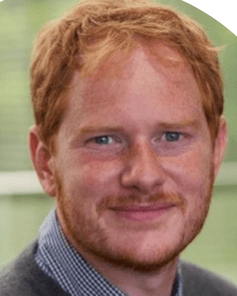
Dr. Nicholas Ballard
University of the Basque Country
Nicholas Ballard is an Ikerbasque Research Associate at the Basque Center for Macromolecular Design and Engineering, POLYMAT Fundazioa. He obtained his bachelor’s degree in Chemistry from the University of Warwick and his doctorate from the same university in 2013. His primary research is focused on new techniques for producing polymeric particles with controllable microstructure/morphology and machine learning in the field of polymer science.
Webpage
https://www.polymat.eu/en/research/Machine-Learning-Polymer-Development
Title of talk
Machine learning in the world of polymer colloids

Dr. Bhuvnesh Bharti
Louisiana State University
Bhuvnesh Bharti is an Anding Endowed Associate Professor in the Cain Department of Chemical Engineering at Louisiana State University. He received his B.S. (Hons. School) and M.S. (Hons. School) from Panjab University Chandigarh, India. He obtained his PhD at Technische Universität Berlin, Germany in 2012, which was followed by postdoctoral research at Shinshu University and North Carolina State University. Bhuvnesh is the recipient of several awards including NSF-CAREER (2020), LSU Rising Faculty Research Award (2021), Soft Matter Emerging Investigator Award (2023) by Royal Society of Chemistry. His research group investigates structure-property-function relationships in particle dispersions and develops methodologies to program their equilibrium and non-equilibrium behaviors. His present research interests include interfacial adsorption, active matter, directed assembly, and fundamental investigations on environmental colloidal pollutants such as microplastics and PFAS.
Webpage
https://faculty.lsu.edu/bbhartigroup/index.php
Title of talk
Non-Equilibrium Phenomena in Polymer Colloids: From Controlling Microbots to Understanding Microplastics
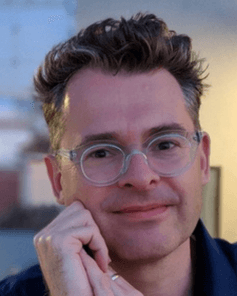
Prof. Stefan Bon
Warwick University
Stefan A. F. Bon is a tenured professor in the Department of Chemistry at The University of Warwick. Bon studied Chemical Engineering at the Technical University of Eindhoven (TUE), the Netherlands (cum laude, 1989-1993), and has a background in the mechanistic and kinetic development of (reversible deactivation) radical polymerizations (1993-2005). Since 2005, Bon has developed himself as an international player in polymer and colloid science. He continues innovating with his scientific team, BonLab (https://bonlab.info), by combining polymer and colloid chemistry with soft matter physics and adding a chemical engineering twist. The gained know-how is then coupled to material properties and behaviour to advance material design, often in close collaboration with industry. In the last few years, a “green transformation” on approaching and tackling scientific projects has been undertaken with a strong emphasis on sustainable technology and innovation, which now sits centrally in BonLab’s research activities.
Webpage
Title of talk
Greenifying Polymer Colloids
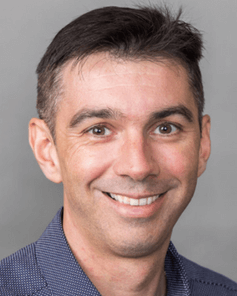
Prof. Cyrille Boyer
University of New South Wales
Professor Cyrille Boyer is an Australian Laureate Fellow at the University of New South Wales in the School of Chemical Engineering (Cluster for Advanced Macromolecular Design). He specializes in the synthesis of functional macromolecules for applications in nanomedicine, advanced materials, and energy storage. He utilizes photo-RAFT polymerization to prepare functional nanoparticles and materials. Cyrille’s work has been recognized by prestigious awards, including the 2018 IUPAC-Polymer International Young Researcher Award, 2016 ACS Biomacromolecules/Macromolecules Young Investigator Award, and the 2015 Malcolm McIntosh Prize for Physical Science (one of the 5 Prime Minister’s Prize for Science). Consistently recognized as a Highly Cited Researcher since 2018, he was also acknowledged as one of the leaders in polymers and plastics in Australia by The Australian newspaper.
Webpage
Title of talk
Exploiting Near-infrared to produce functional nanoparticles
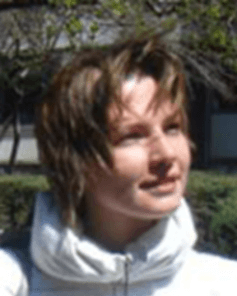
Jasna Brujic
New York University
Jasna Brujic is a Professor of Physics at New York University. She is one of the core faculty in the Center for Soft Matter Research. Brujic is an experimental physicist, who received her Ph.D. for work on the statistical mechanics of granular matter at the Cavendish Laboratory of the University of Cambridge, UK. She then conducted post-doctoral research at Columbia University in the area of single molecule proteins. Since 2007, Brujic has led a research group at the interface between soft matter physics and biophysics. The group uses biomimetic emulsion systems to study jammed matter, cellular organization in tissues in 3D, protein-protein adhesion, and programmable self-assembly of materials with custom designs.
Webpage
https://as.nyu.edu/faculty/jasna-brujic.html
Title of talk

Dr. Celine Burel
Syensqo
Dr Celine Burel is a colloidal scientist with expertise in material science and physical-chemistry. She co-invented the plasmonic-based microcapsules for strain and pH microsensing. She has worked on cross-disciplinary topics including polymer science, inorganic nanoparticles and microbiology. She has co-authored several articles in peer-reviewed journals as well as patents. Celine is currently leading the emulsion polymerization lab of the North American coatings group at Syensqo. Before joining the coatings industry she contributed to the development of a long lasting antimicrobial formulation by leveraging in depth understanding of the physical mechanisms driving the bacteria response to antimicrobials.
Webpage
Title of talk
Strategies to improve the water resistance properties of acrylic polymer films

Prof. Michael Cunningham
Queen’s University
Michael Cunningham is a Professor in Chemical Engineering at Queen’s University and is cross-appointed to the Department of Chemistry. He obtained his PhD at the University of Waterloo, and then spent six years in the Corporate Research Group at Xerox before accepting a faculty position at Queen’s. His research program focusses on the development of novel polymer nanoparticles, CO2-switchable materials, and sustainably-sourced polymeric materials including hybrids of synthetic and renewable polymers. He is Chair of the International Polymer Colloids Group and recipient of several research awards including the Natural Sciences and Engineering Council of Canada Brockhouse Prize, Canadian Macromolecular Science and Engineering Award, Canadian Green Chemistry and Engineering Award, Syncrude Canada Innovation Award, and the Professional Engineer’s Ontario Research and Development Medal. He is a Fellow of the Chemical Institute of Canada, Canadian Academy of Engineering and Engineering Institute of Canada, and is the past President of the Canadian Society of Chemical Engineering.
Webpage
Title
Block-Random Copolymers; Solution Properties and Their Role as Stabilizers in Emulsion Polymerization
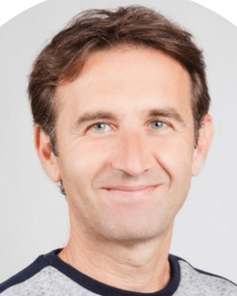
Dr. Franck d’Agosto
CNRS - University of Lyon
Franck D’Agosto completed a PhD in polymer chemistry at the CNRS-bioMérieux joint research unit (University of Lyon, France) before working at the University of Sydney (Australia) as a postdoctoral fellow at the Key Center for Polymer Colloids. Appointed to the Centre National de la Recherche Scientifique (CNRS) in 2002, he is now research director at the Catalysis, Polymerization, Processes and Materials (CP2M) laboratory (Villeurbanne, France). His research focuses on the control of polymer architectures using different polymerization chemistries – such as catalytic and controlled radical polymerization – carried out in solution or in dispersed media.
Webpage
https://www.cp2m.org/people/58-directeur-de-recherche-franck-dagosto.html
Title of talk
Leveraging emulsion and olefin polymerization cultures to drive innovation
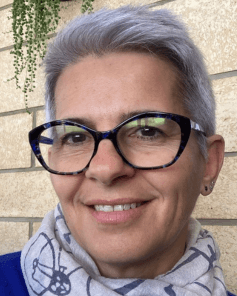
Dr. Sophie Drillieres
Synthomer
Sophie Drillieres is graduated with an engineering degree in Polymer Chemistry and Physics from ECPM(EAHP) of Strasbourg/France and a PhD carried out jointly in the groups of Profs J-F. Tassin and J-C. Brosse in Le Mans/France, in the field of emulsion polymers. She then joined Goodyear Specialty Chemicals in 1999 as a R&D scientist at the French technical center. GY Specialty Chemicals went through successive acquisitions, which have enabled Sophie to work in international environments in various areas such as production support, customers technical assistance, management of the technical center, and this for 25 years in the field of emulsion polymerization, for applications such as coatings, drilling fluids, adhesives and elastomer additives. Sophie now contributes to the identification, development and integration of new technologies and products to support Synthomer’s Divisions new product development strategy and is responsible for the academic partnerships.
Webpage
Title of talk
Synthomer’s approach to developing sustainable products
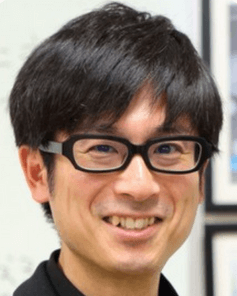
Prof. Syuji Fujii
Osaka Institute of Technology
Prof. Syuji Fujii graduated from Kobe University (Ph.D. 2003). His postdoctoral studies were carried out at University of Sussex (UK) from 2003 to 2004 and at University of Sheffield (UK) from 2004 to 2006. He joined Osaka Institute of Technology as a Lecturer in 2006 and was promoted to Associate Professor in 2013 and Professor in 2017. His major research interests focus on synthetic polymer chemistry, design and characterization of polymer-based particles, biomimetics, and particle-stabilized soft dispersed systems including emulsions, foams, liquid marbles and dry liquids. He is currently one of editorial advisory board members of Langmuir (ACS) and Hybrid Advances (Elsevier).
Webpage
https://www.chem.oit.ac.jp/cherry/4_lab/research2_work.html
Title of talk
Air-water soft dispersed systems stabilized with polymer particles
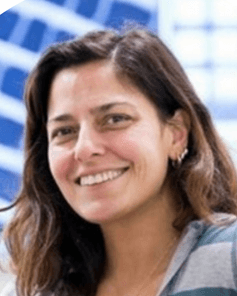
Dr. Ahu Gumrah Parry
University of Manchester
Dr. Ahu Gümrah Dumanlı-Parry is a Lecturer (Assistant Prof) in Bioinspired Soft Matter at the University of Manchester, Department of Materials. She is a materials chemist and the first recipient of the bp-ICAM Kathleen Lonsdale Research Fellowship received in 2019 for her work on bio-inspired advanced materials. Dr Dumanli-Parry’s research group focuses on understanding of the self-assembly process in nature and mimicking it to produce structurally ordered materials via the self-assembly process. With her research group, Dr Dumanli-Parry investigates the complex relationship between the intrinsic properties of the colloidal building blocks and the physical effects that modulate the self-assembly process to build active matter for optical sensors and shape morphing systems as well as light-harvesting applications.
Webpage :
Title of talk
Marangoni flow-driven angular self-assembly of cellulose nanocrystals-The tale of tilted tactoids and folded domains

Prof. Ian W Hamley
University of Reading, England
Professor Ian W. Hamley is Diamond Professor of Physical Chemistry at the University of Reading. He has more than 20 years’ experience of research on different types of soft materials, including peptides, polymers, colloids, liquid crystals and surfactants. He received a Royal Society- Wolfson Research Merit Award in 2011, the RSC Peter Day Award for Materials Chemistry (2016) and the MacroGroup UK Medal (2017) and is currently an EPSRC Fellowship holder. His research programme focuses on the self-assembly of polymers and soft matter more broadly as well as biomaterials and biomedical applications. He has supervised more than fifty postdoctoral and postgraduate researchers and has published over 500 papers and books.
Webpage :
https://www.reading.ac.uk/chemistry/staff/professor-ian-hamley
Title of talk
Using Small-Angle Scattering to Examine Colloidal Properties of Model Surfactant and Biosurfactant Systems
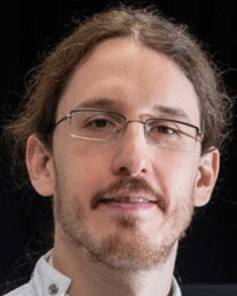
Dr. Ignacio Martin-Fabiani
Loughborough University
Dr Nacho Martin-Fabiani is a UKRI Future Leaders Fellow and Senior Lecturer in Materials Science in the Department of Materials at Loughborough University, UK. He leads a research group working in the fields of colloid, interface, and soft matter science. Current research lines include the development of novel functional coatings – including antibacterial and abrasion resistant –, experimental methods to aid soft materials formulation, and detection and characterisation of microplastics. He has received awards and honours for his work, including a Vice-Chancellor’s Research Fellowship at Loughborough University (2016), the Polymer Lecture Exchange Award by the Institute of Physics and the American Physical Society (2019), and a Future Leaders Fellowship from UK Research and Innovation (2020). He sits on the Joint Colloids Group committee from the Royal Society of Chemistry and the Society of Chemical Industry and is Associate Editor of Frontiers in Soft Matter.
Webpage
Title of talk
Understanding the formulation and assembly of colloidal films: An ongoing journey
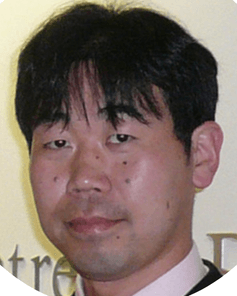
Prof. Hideto Minami
Kobe University
Hideto Minami (Professor, Dr. Eng.) is the group leader of the Soft Matter Interface Laboratory at Kobe University. He was born in 1970 and graduated with a Bachelor’s degree in 1994 and a master’s degree in 1996 from Kobe University. He began his research career as a research associate in Prof. Masayoshi Okubo’s group at Kobe University, and he subsequently received the doctor’s degree of engineering from Kobe University in 2002. He was promoted to Associate Professor in 2004 and to Professor in 2019. His main focus field is the preparation of functional polymer particles by heterogeneous radical polymerization processes from the viewpoint of colloid chemistry/physical chemistry.
Webpage
https://researchmap.jp/read0046625?lang=en
Title of talk
Preparation of non-spherical polymer particles using mechanical stress

Prof. Bert Meijer
Eindhoven University of Technology
E.W. “Bert” Meijer is Distinguished University Professor in the Molecular Sciences and Professor of Organic Chemistry at the Eindhoven University of Technology, the Netherlands. He received his PhD degree at the University of Groningen with Hans Wynberg in the field Organic Chemistry. He then worked for 10 years in industry (Philips Research and DSM Research) being introduced to polymer materials. In 1991 he was appointed in Eindhoven, while in the meantime he has part-time positions in Nijmegen, MPI-Mainz, Santa Barbara, and since 2022 he is a visiting professorial fellow of the University of New South Wales in Sydney, Australia. Dr. Meijer is a member of many editorial advisory boards, including Advanced Materials and is associate editor of the Journal of the American Chemical Society.
Webpage
Title of talk
From supramolecular polymers to functional materials and systems

Dr. Isabel Saenz de Buruaga
PPG
Isabel obtained her PhD in Chemistry at the Chemical Engineering Group of the Chemical Faculty, Basque Country University, San Sebastian (Spain), and during that time she spent a period of time at 3M (St.Paul, MN USA) working in the Pressure Sensitive Adhesives Division. After her PhD studies, she started working as a research associate at the Polymer Research Center (CIP) of COMEX, Mexico’s largest paint company in the Architectural market, which was acquired by PPG at the end of 2014. She continued her career at CIP through different positions until becoming the Director of the Center in 2021. She has more than 24 years working in the Science and Technology area of PPG-Comex, leading a multidisciplinary team of researchers that develops and optimizes competitive products such as emulsions and additives for paints and coatings market that represent innovative, high impact and sustainable (environmentally friendly) solutions.
Webpage
Title
Solving coatings application problems through collaboration work between emulsions synthesis and characterization areas
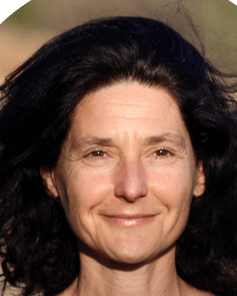
Dr. Maud Save
CNRS - University of Pau
Maud Save graduated with a M.Sc from the University of Bordeaux where she was introduced to polymer science in the Laboratoire de Chimie des Polymères Organiques directed by Prof. M. Fontanille. After completing her PhD in 2000 on ring opening polymerization of cyclic esters under the supervision of Prof. A Soum at the University of Bordeaux, she joined the group of S P. Armes at Sussex University (UK) as post-doctoral researcher. In 2002 she was recruited as CNRS Junior researcher in the group of Prof. B. Charleux at Université Pierre et Marie Curie (Paris) where she developed research on controlled radical polymerization, block copolymers and emulsion polymerization. In 2008 she moved to IPREM laboratory at the University of Pau and Pays de l’Adour (France) and was promoted full Senior researcher by CNRS in 2015. Through a university sabbatical programme, she spent 9 months at Western Sydney University in the group of P. Castignolles and M. Gaborieau in 2019-2020.
Webpage
https://iprem.univ-pau.fr/en/institute/permanent-staff/cv_en_-msave-en.html
Title of talk
Functional polymer colloids designed by polymerization in dispersed media as tool for a sustainable chemistry: From photochemistry, extraction of organic pollutants to renewable resources.
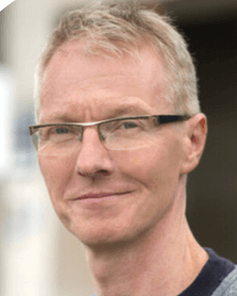
Dr. Jurgen Scheerder
Covestro
Jurgen Scheerder graduated with a degree in chemical technology from the Technical University Twente, the Netherlands, in 1991 and a PhD in 1995 in the group of Prof. D.N. Reinhoudt in the field of supramolecular chemistry. After two post-docs in the field of polymer chemistry he joined what is now called Covestro (Netherlands) B.V. in 1998. Since then he has been working in the field of waterborne acrylic polymer dispersions for a wide variety of coating and ink applications, holding various positions within R&D. Currently he is a Covestro Science Fellow for the Waterborne Polyacrylate Technology. His field of expertise includes emulsion polymerisation, coating technology and adhesion. He hold 25 patents (applications) and has contributed to over 30 scientific papers.
Webpage
Title of talk
The science and industrial relevance of polymeric surfactants
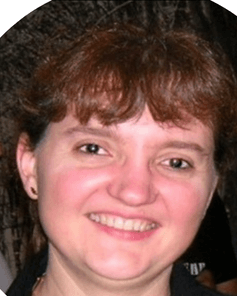
Dr. Véronique Schmitt
CNRS - University of Bordeaux
Véronique Schmitt is a CNRS senior researcher working in Bordeaux in France. After a Ph-D in Strasbourg on shear induced transitions in wormlike micelles, she moved to Lund in Sweden for a post-doctoral position before being hired at CNRS in Nancy with a permanent position with a research project on emulsions. Since 1998, she is working at Centre de Recherche Paul Pascal in Bordeaux, France. Her research focuses on the elaboration and characterization of dispersed model systems like suspensions, emulsions and foams in view of addressing the link between structure and properties. She has a special interest on emulsions and foams stabilized by particles. Her subjects have evolved from very kinetically stable Pickering emulsions to emulsions that can be destabilized on demand thanks to a stimulus like temperature, pH, light, enzyme… She has also special interest in working on more eco-friendly systems.
Webpage
https://www.crpp.cnrs.fr/en/research-teams/team-cia/
Title of talk
Elaboration and characterization of capsules from the polymerization of Pickering emulsions stabilized by cellulose nanocrystals (CNC)

Dr. Zhong Zeng
BASF
Zhong Zeng earned his PhD in polymer chemistry from Tsinghua University, China, in 2005. Over the past 20 years, he has built a career in the emulsion polymerization industry, focusing on the research and development of dispersion products for a diverse range of applications, including waterborne architectural coatings, adhesives, and construction materials. Throughout his career, he has held various positions in research and development. Currently, he serves as an Executive Expert in the field of “Dispersions, Resins, and Additives”, leading the global BASF team dedicated to fundamental research in Polymer Colloids. He is also a (co)inventor on 21 patents.
Webpage
Title of talk
Waterborne dispersions towards better sustainability